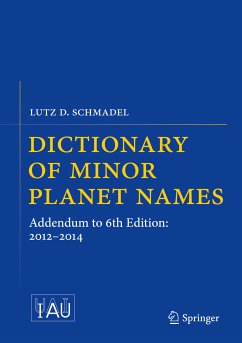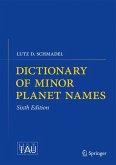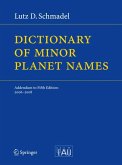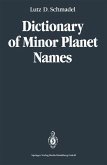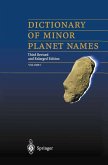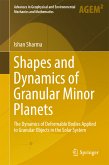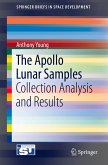Dieser Download kann aus rechtlichen Gründen nur mit Rechnungsadresse in A, B, BG, CY, CZ, D, DK, EW, E, FIN, F, GR, HR, H, IRL, I, LT, L, LR, M, NL, PL, P, R, S, SLO, SK ausgeliefert werden.
"This is by any standards a quite excellent reference book: comprehensive, accurate, consistently edited and elegantly designed and produced. While it is obviously geared to any or all members of the astronomical community (including libraries serving them) it also has a much wider fascination for all those of us fascinated by names themselves and by the processes of naming objects." (Stuart James, Reference Reviews, Vol. 28 (3), 2014)
"German astronomer and historian Schmadel (Heidelberg Univ.) has published a sixth edition ... of this annotated compilation of the named minor planets, with more than 7,000 entries added since the last edition. ... Following the planet's name is a short descriptive history of whom the planet was named for. ... Although this book is intended for special users, its organization and annotations can give budding scientists a glimpse into the history of astronomy. Summing Up: Recommended. Graduate students through professionals/practitioners." (R. J. Havlik, Choice, Vol. 50 (7), March, 2013)

